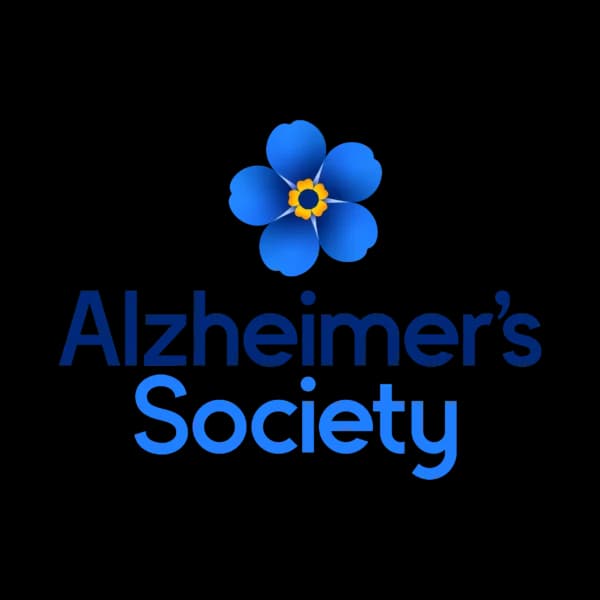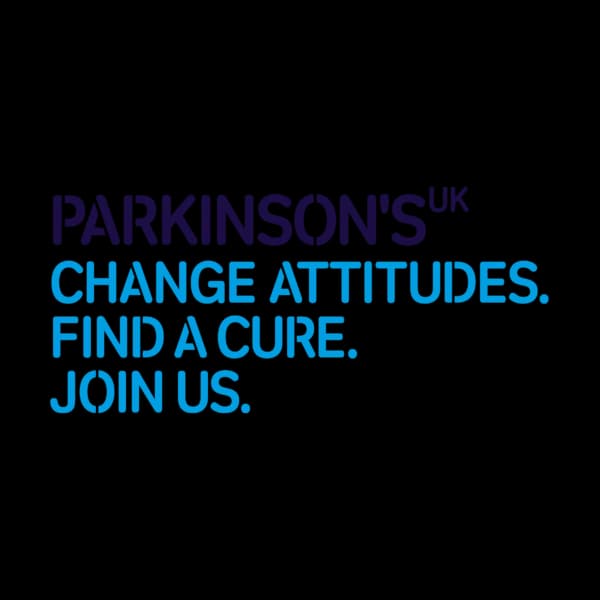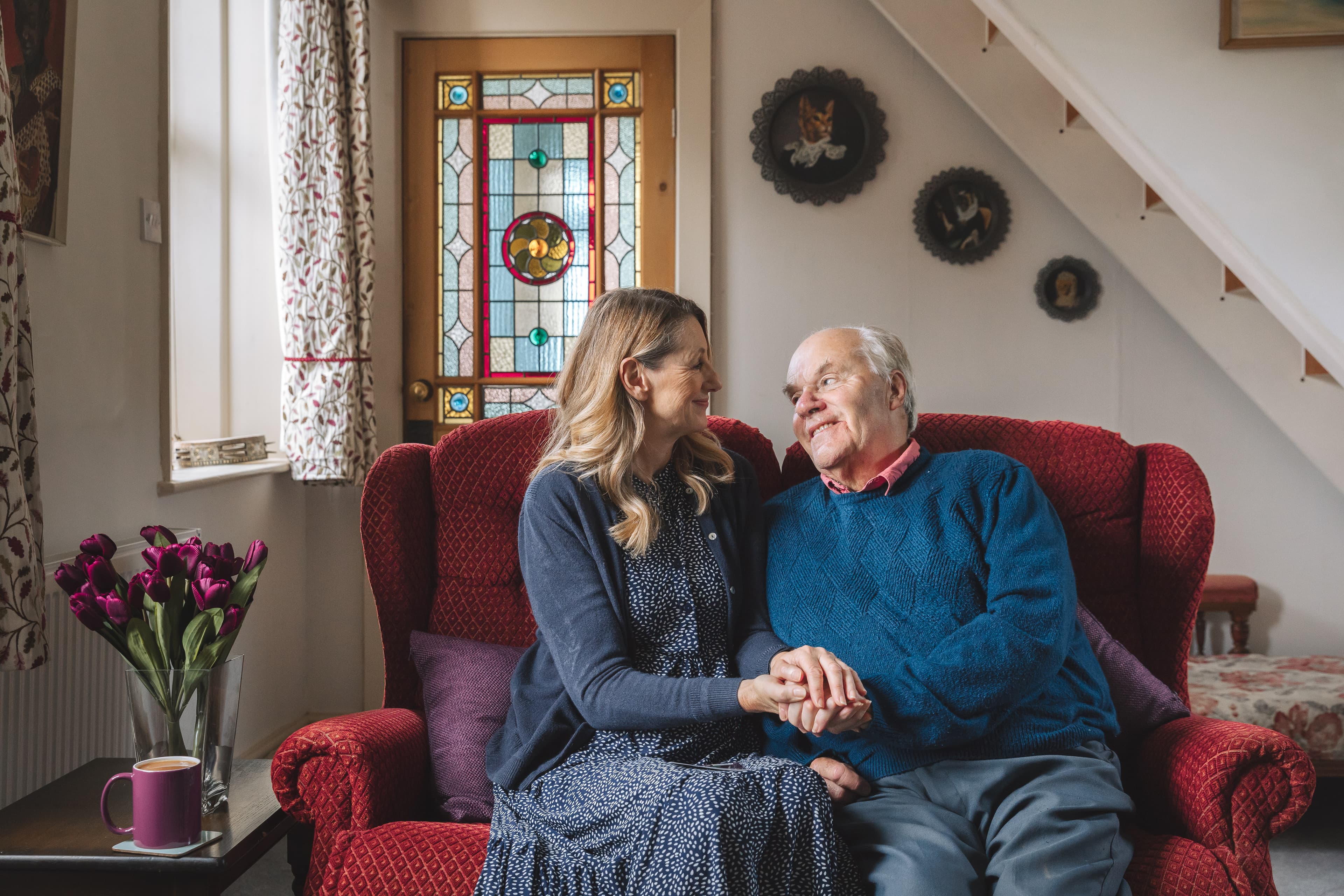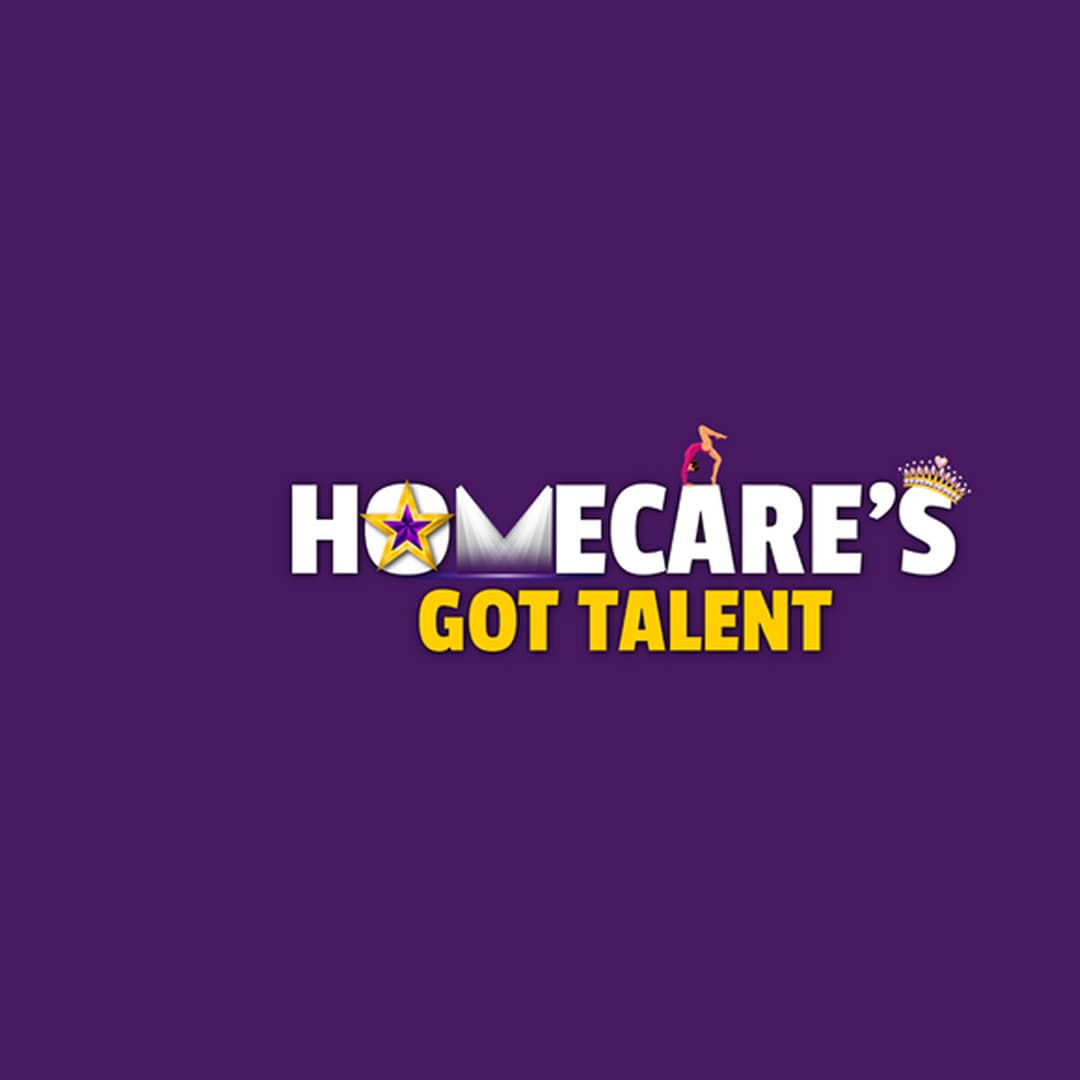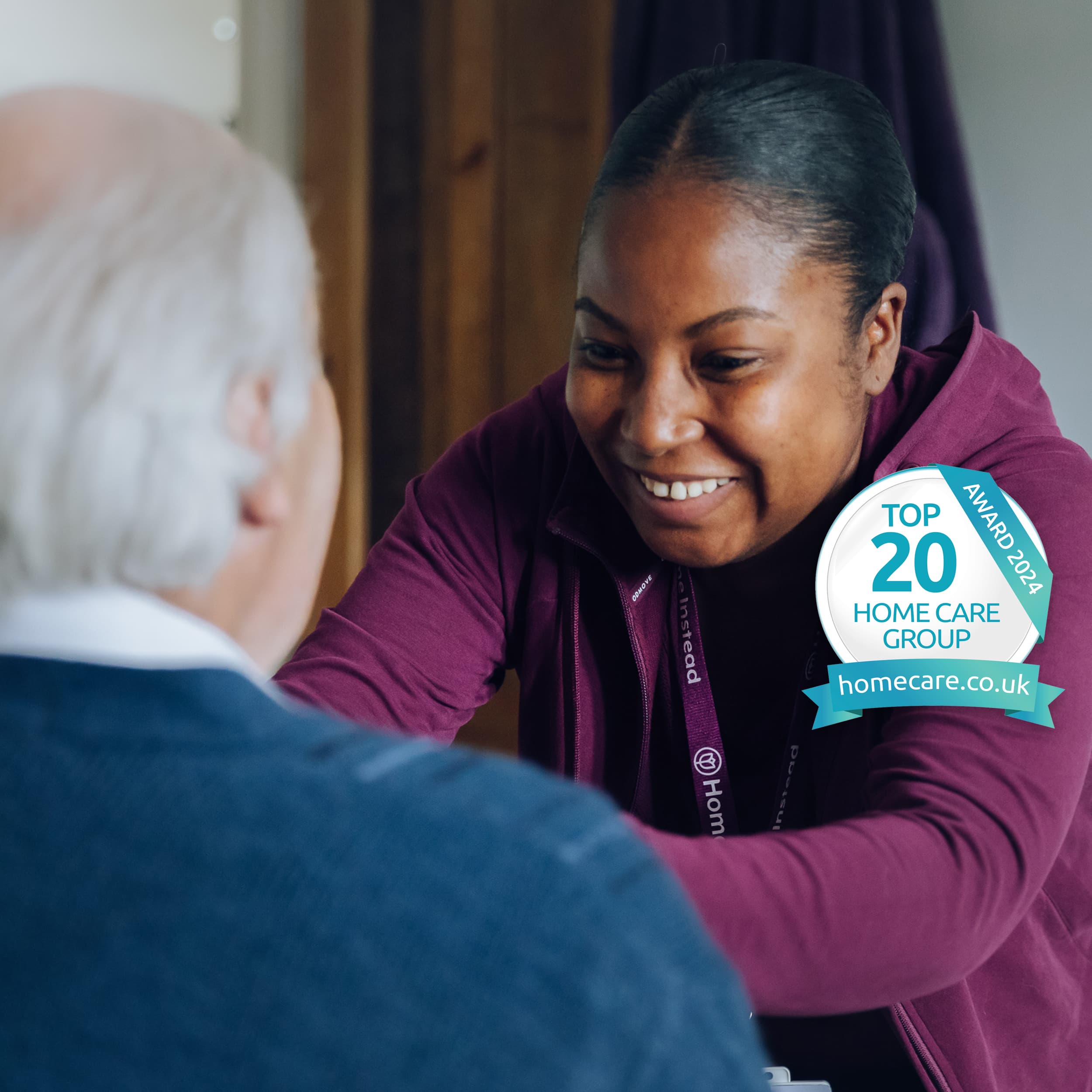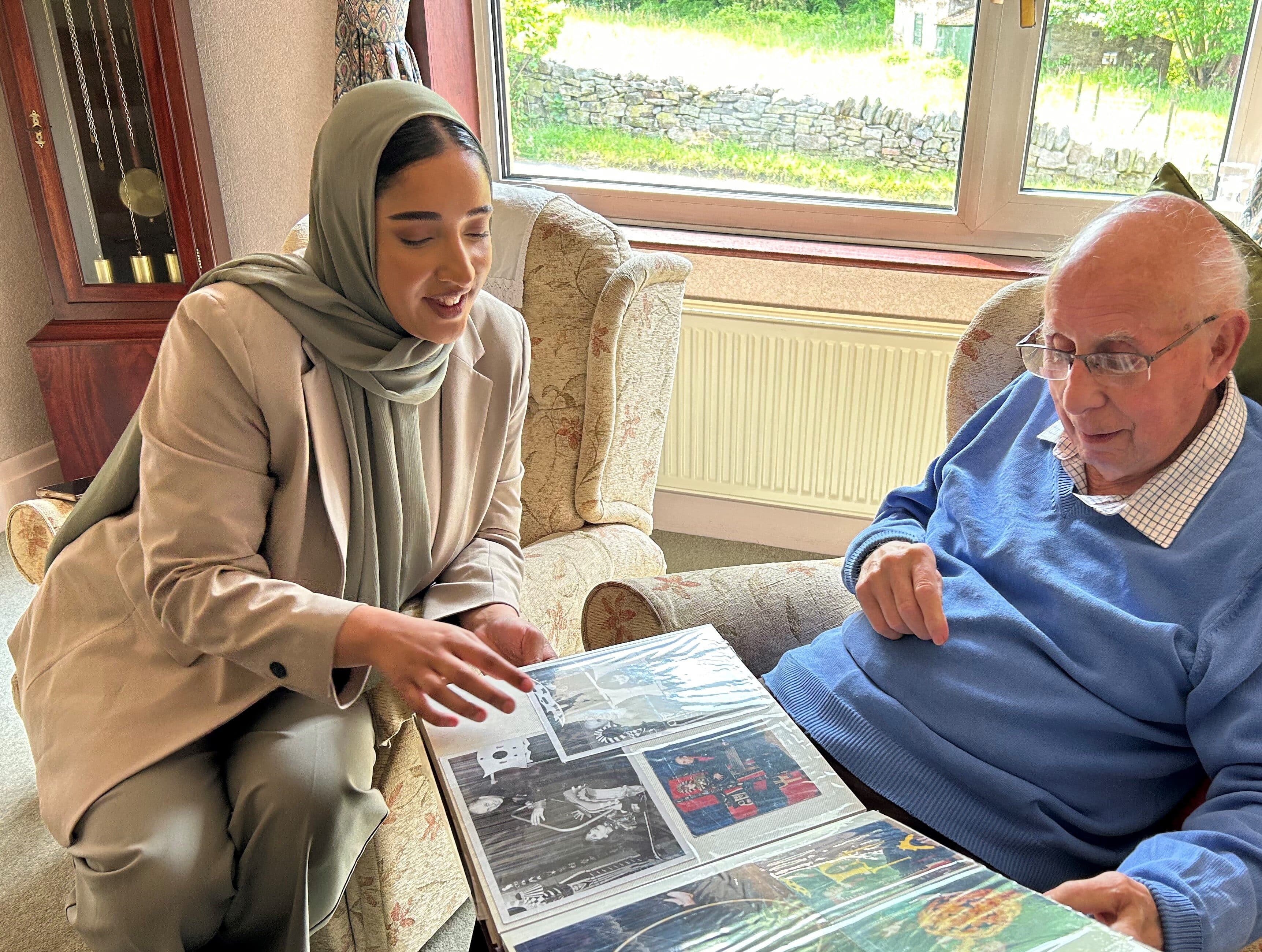
Caring for a stroke patient at home
Advice for those caring for an older relative recovering from a stroke, or expert care at home from Care Professionals who understand the challenges experienced by stroke patients.
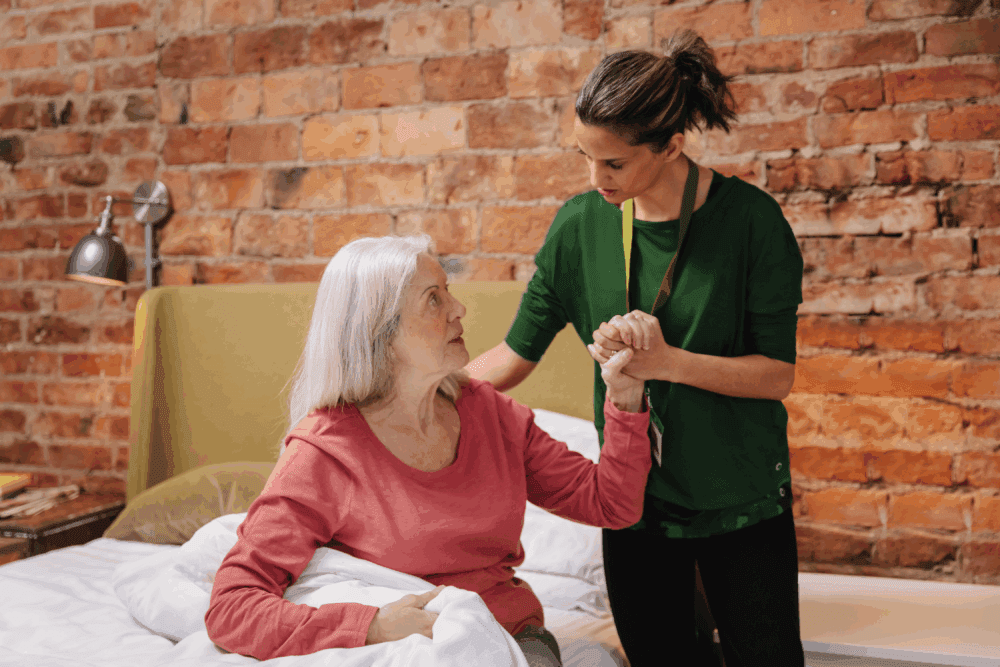
What happens when someone has a stroke?
A stroke is an emergency situation which causes blood to stop flowing to a particular part of the brain, affecting functions like speech and movement. Stroke symptoms can be temporary or permanent, and recovery can take months or years.
The Stroke Association estimates there are around 1.4 million stroke survivors in the UK, with some making a full recovery and others needing care on a temporary or permanent basis. After a stroke, needs may include:
-
Communication assistance
-
Mobility support due to weakness or fatigue
-
Help with eating due to difficulty swallowing
-
Emotional support for depression
-
Overnight care for sleep disruptions
Quality stroke aftercare at home is important for recovery, to help patients regain as much independence as possible.
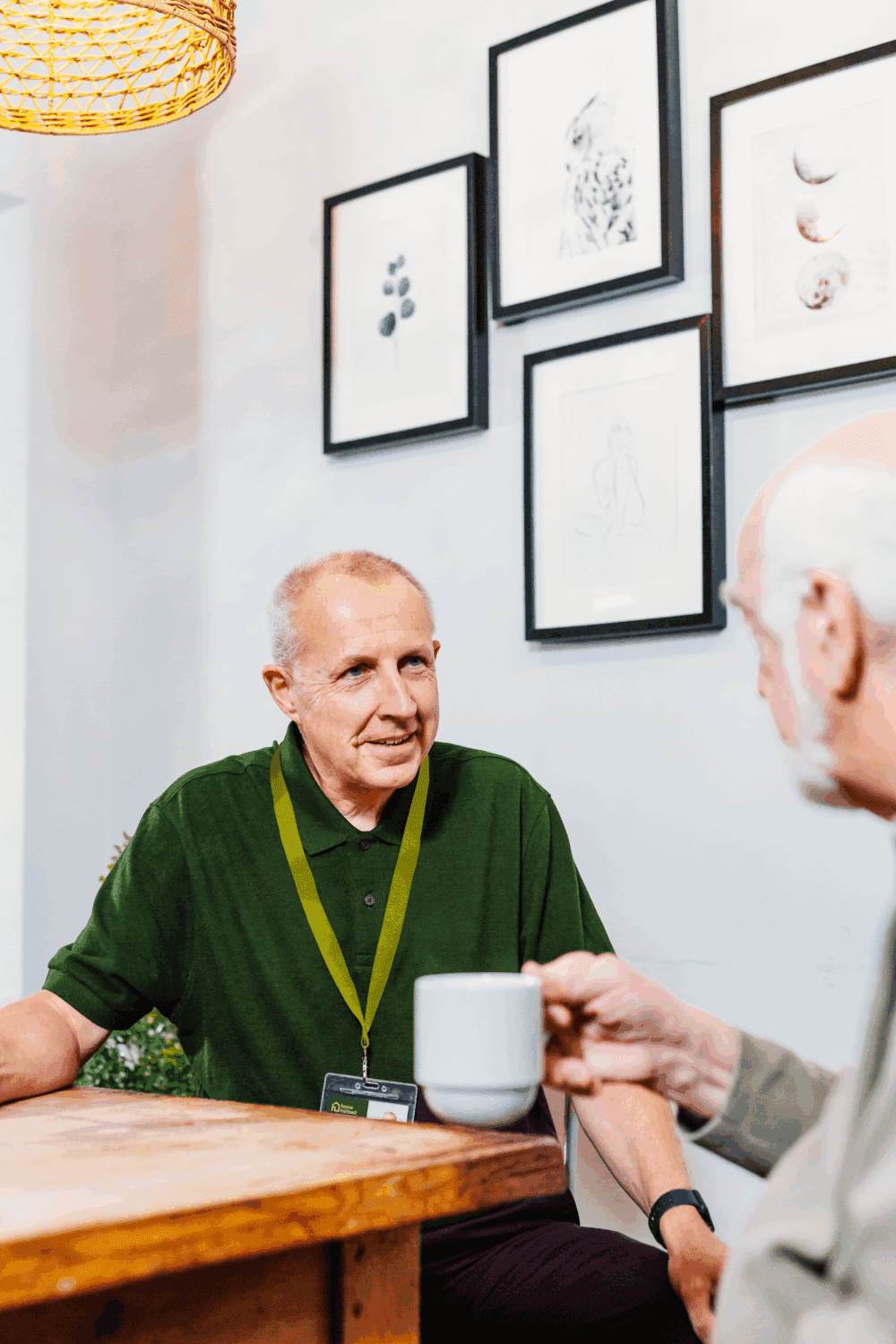
What does stroke care at home entail, and why is it important?
Stroke is the leading cause of adult disability in the UK, with two thirds of stroke survivors living with a disability. The specifics of post-stroke care will depend on an individual’s unique symptoms and what they continue to struggle with during recovery. This may involve:
-
Companionship to help manage emotions
-
Assisting with prescribed therapy, such as physical therapy or speech therapy
-
Monitoring for signs of complications
-
Help arrange medical care and hospital visits
A team of healthcare professionals may be involved in care immediately after a stroke, such as nurses and physiotherapists, but home care can help to support the everyday needs of an older person on a long-term basis.
Does my loved one need stroke care?
Strokes can leave patients with ongoing needs due to symptoms like weakness, communication troubles or balance issues. Hospital care is essential in the beginning to manage initial life-threatening symptoms, but during the long-term recovery process, home care can support many of their daily needs to keep them in a familiar environment where they can rebuild confidence, maintain routines, and regain independence.
Family caregivers can sometimes help with this, but professional stroke care (either as regular care or respite care) can take over with bespoke assistance. If you are suffering from carer’s burnout or need to juggle caregiving duties with other responsibilities, professional stroke care could help you find balance in your routine.
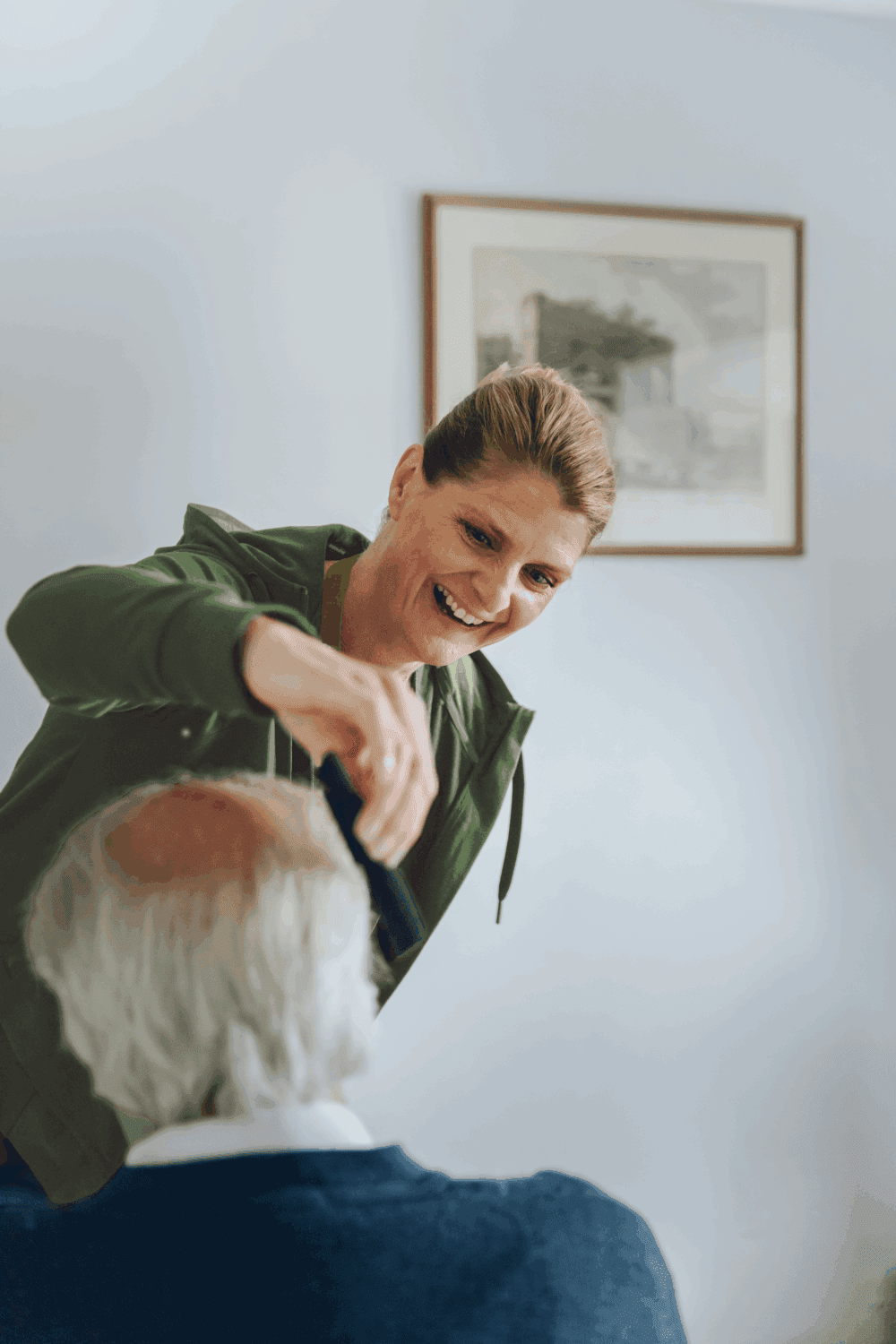
How can we help?
We've helped thousands of families to stay safe, comfortable and happy at home. Whatever situation you're facing, or whatever the question is, Home Instead is here to help.
Are you in need of a little guidance right away?
03300 583450Other non-care-related enquiries

Home Instead have an experienced caring team that far exceeds in quality anything we experienced from other agencies at this point of service.
Steve, Client

I have had my care from Home Instead for almost ten years and things just keep getting better. I can’t praise them enough.
Kevan, Client
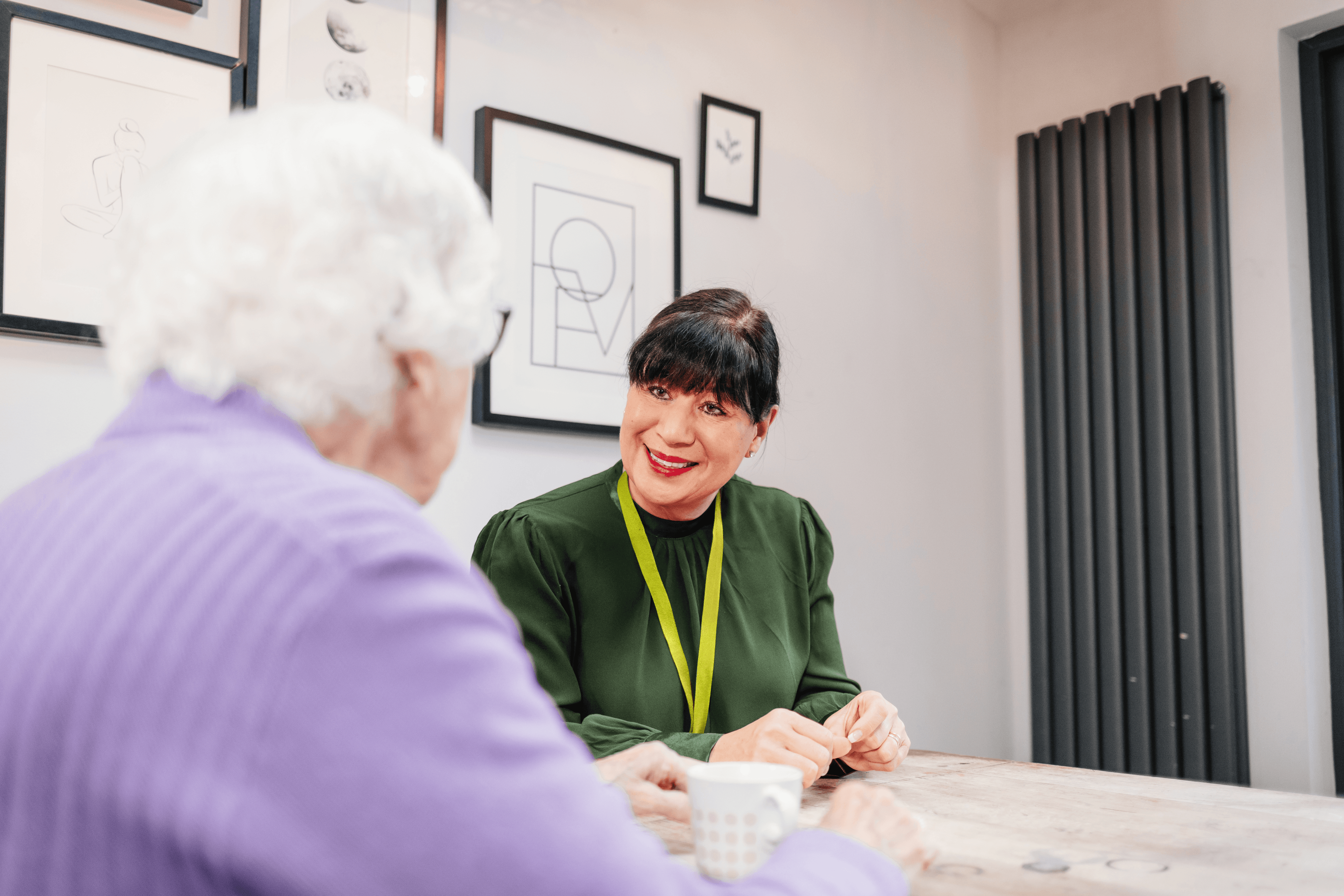
Knowing that mum has caring and genuine people to help take care of her gives me peace of mind and mum looks forward to seeing the Care Professionals. Thank you for making such a big difference to both of our lives.
Rebecca, Client's Family
Get in touch today to
see how we can help
Get in touch How to get started arranging stroke care
If you are unsure whether or not your loved one could benefit from stroke care at home, speak to their GP or arrange a Care Needs Assessment to learn more. Alternatively, if they have been in hospital following a stroke, the doctor in charge of their care may be able to arrange the next steps.
An assessment team from your local council will usually visit your loved one’s home to discuss their health and needs, and determine what kind of care is best, how often, and how much of this could be funded vs how much you will pay out of pocket. If you are seeking stroke care through a private agency like Home Instead, you can reach out to arrange a home visit to help create a care plan that fits their needs.
Why Home Instead?
We are proudly rated 9.6 on Homecare.co.uk, with many of our locations also rated “outstanding” by the Care Quality Commission (CQC). When arranging stroke care, we match families with an experienced, friendly Care Professional who understands the unique after-stroke care needs of patients who may struggle with a combination of mobility, communication and emotional issues. Our bespoke support can encourage the small steps needed to improve their independence every day.
“[The client] had suffered a stroke in 2019 which left her with aphasia, unable to speak, read or write but mentally clear… The Home Instead carers were remarkable in their patience and understanding of how to make the client’s life more enjoyable.”
– Review via Homecare.co.uk
Advice & Support
FAQs
- What is after-stroke care at home, and why is it important?
After-stroke care at home focuses on managing the physical, cognitive, and emotional symptoms that arise after a stroke. It ensures individuals receive personalised support to improve their quality of life, prevent complications, and aid recovery in the comfort of their own home.
- What symptoms can home care help manage after a stroke?
Home care can assist with managing a range of symptoms, including mobility challenges, muscle weakness, speech difficulties, memory issues, and emotional changes such as anxiety or depression. Care Professionals provide tailored support to address these symptoms and promote recovery.
- How can home care help with mobility and physical challenges after a stroke?
Care Professionals assist with exercises to improve strength and coordination, help with walking or using mobility aids, and ensure the home is adapted for safety. They also provide support with daily tasks like bathing and dressing to reduce strain and prevent falls.
- Can home care support emotional and cognitive symptoms after a stroke?
Yes, home care includes emotional support to help individuals cope with mood changes, frustration, or anxiety. Care Professionals can also assist with memory aids, communication strategies, and activities that stimulate cognitive function, helping individuals regain confidence and independence.
- How do I arrange after-stroke care at home?
To arrange after-stroke care, just get in touch with Home Instead to discuss your needs. We’ll work with you to create a tailored care plan, ensuring your chosen Care Professional is fully trained to provide all the necessary support you need for recovery and rehabilitation.
